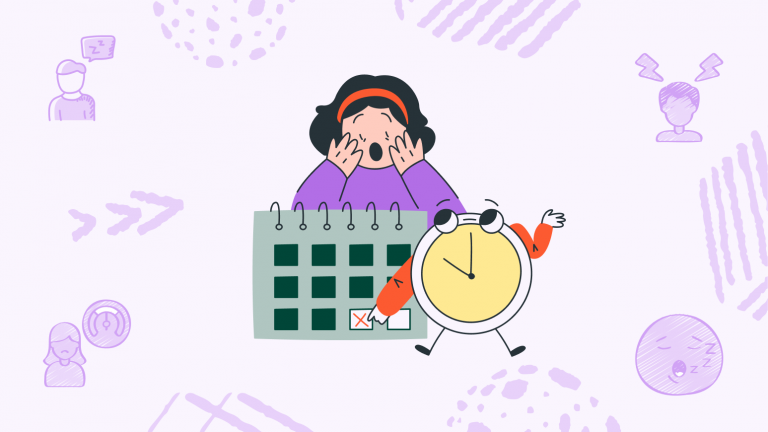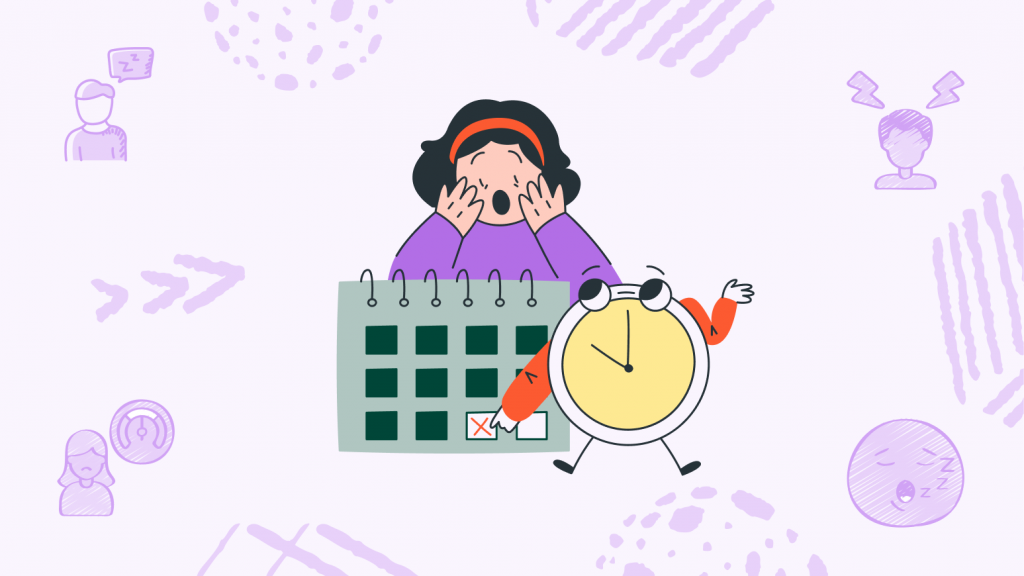The Struggle of the Sleepless Planner
Lying in bed, eyes wide open, with tomorrow’s tasks sprinting through your mind—this scenario is all too familiar for many. The night becomes a battleground, where instead of resting, you’re planning, strategizing, and worrying about the endless to-do list for the next day.
This relentless mental activity not only steals your sleep but also saps the energy you need for the coming tasks, creating a vicious cycle of worry and wakefulness.
The Daily Dilemma
For countless individuals, the challenge of shutting down the brain at bedtime is a nightly ordeal. Picture this: as soon as your head hits the pillow, your mind kicks into overdrive.
From work assignments, personal errands, to social commitments, every unfinished task and looming deadline parades through your thoughts, keeping you awake. This constant preoccupation with future responsibilities can lead to a significant reduction in sleep quality, leaving you feeling groggy, unfocused, and irritable the next day, further exacerbating the anxiety about managing your workload.
Understanding the Nocturnal Knot
This section delves into the neurological and neurochemical tumult that occurs when you’re unable to quiet your mind at night. Your brain is wired to process information and solve problems, so when you fixate on your to-do list, it goes into overdrive, releasing stress hormones like cortisol.
This hormonal surge disrupts the natural sleep-wake cycle and inhibits the production of sleep-inducing chemicals like melatonin. Additionally, the brain’s persistent engagement in task-oriented thought processes can lead to heightened alertness, making it increasingly difficult to transition into the relaxed state necessary for sleep.
Subscribe to newsletter
Get your Gut Health Starter Guide right now.
Elevate your Tuesdays with practical, science-backed wisdom propelling you forward on your gut health journey.

Strategies for Serene Slumber
To combat this nocturnal overactivity and foster a more peaceful mindset, consider the following actionable steps:
- Evening Unwind Ritual: Create a pre-sleep routine to signal to your brain that it’s time to power down. This could include activities like reading, taking a warm bath, or practicing relaxation exercises.
- Write It Down: Before bed, jot down your to-do list for the next day. This act can transfer the burden from your mind to the paper, providing a sense of closure and control.
- Mindfulness and Meditation: Engage in mindfulness or meditation practices to help detach from the day’s worries and focus on the present moment, easing the transition to sleep.
- Sleep Environment Optimization: Ensure your bedroom is conducive to sleep—cool, quiet, and comfortable. Limit exposure to screens and bright lights in the hour before bed to help regulate your body’s natural sleep rhythm.
Testimonials of Tranquility
For Emma, the night was a battleground, her mind an adversary armed with a relentless barrage of tasks and deadlines. As a project manager, the intertwining tendrils of her to-do lists crept into her nights, stealing sleep and peace. The transformation began with a simple yet powerful ritual, crafting a bridge from chaos to calm.
“Nighttime used to be my biggest challenge. Lying in bed, my mind raced through the endless tasks awaiting me, fueling anxiety and banishing sleep. Realizing I needed a change, I started a routine to declutter my thoughts and calm my mind before bed.
Each night, I began to jot down the tasks for the next day. This act of transferring thoughts from mind to paper was therapeutic, like setting down a heavy load. It provided a sense of closure for the day and a clear plan for tomorrow, quieting the mental noise.
Following this, I dedicated a few minutes to meditation. At first, it felt like just another task, but soon it became a sanctuary of tranquility. The meditation helped in silencing the cacophony of tasks and worries, ushering in a sense of stillness and readiness for sleep.
This new nightly ritual transformed my sleep drastically. Within weeks, the dread of bedtime was replaced by a welcoming calm. Falling asleep became easier, and mornings turned from groggy battles to refreshed awakenings.
My journey from sleepless anxiety to restful nights showed me the power of simple, consistent routines in restoring balance. This small change didn’t just improve my sleep; it enhanced my overall well-being and productivity, proving that reclaiming the night for rest was possible and transformative.”


















